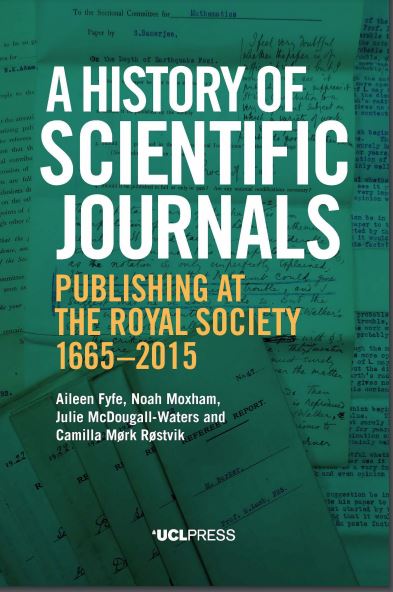A History of Scientific Journals
Editorial: UCL Press
Licencia: Creative Commons (by-nc)
Autor(es): Raymond, Joad y Moxham, Noah
Fyfe, Aileen
McDougall-Waters, Julie
Røstvik, Camilla Mørk
Modern scientific research has changed so much since Isaac Newton’s day: it is more professional, collaborative and international, with more complicated equipment and a more diverse community of researchers. Yet the use of scientific journals to report, share and store results is a thread that runs through the history of science from Newton’s day to ours. Scientific journals are now central to academic research and careers. Their editorial and peer-review processes act as a check on new claims and findings, and researchers build their careers on the list of journal articles they have published. The journal that reported Newton’s optical experiments still exists. First published in 1665, and now fully digital, the Philosophical Transactions has carried papers by Charles Darwin, Dorothy Hodgkin and Stephen Hawking. It is now one of eleven journals published by the Royal Society of London. Unrivalled insights from the Royal Society’s comprehensive archives have enabled the authors to investigate more than 350 years of scientific journal publishing. The editorial management, business practices and financial difficulties of the Philosophical Transactions and its sibling Proceedings reveal the meaning and purpose of journals in a changing scientific community. At a time when we are surrounded by calls to reform the academic publishing system, it has never been more urgent that we understand its history.
Compartir:
Una vez que el usuario haya visto al menos un documento, este fragmento será visible.


